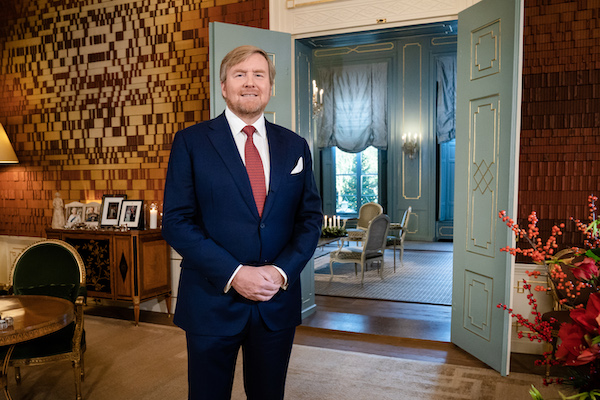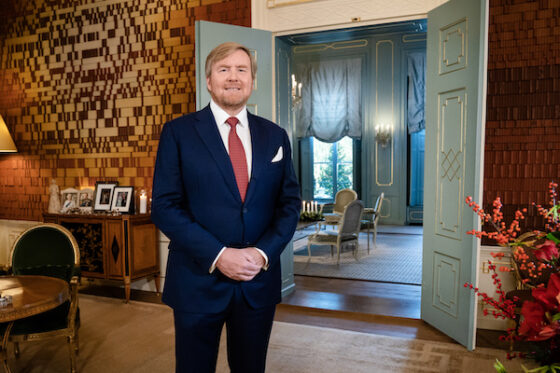King: dealing with colonial past is a ‘long process of healing’


King William-Alexander has said acknowledging the Netherlands’ slave-trading past is a ‘healing process’ that will take decades, beginning with the apology issued by prime minister Mark Rutte last December.
In the latest episode of a podcast series to mark his 10th year on the throne, the king said he wanted to ‘come clean’ about the royal family’s relationship with slavery as part of a wider examination of colonial history.
Last December he commissioned an independent report into the house of Oranje-Nassau’s role in the colonial past, to be headed by Leiden University historian Gert Oostindie.
The royal household is also carrying out an audit of its collection of artworks and artefacts to see if it contains any items that should be returned to the former colonies.
‘I know I’m not guilty of anything, but clearly I have a responsibility towards Dutch society for what our ancestors did. And that’s why I asked for an independent and scientific study,’ he said.
The king will address this year’s Keti Koti (‘break the chains’) ceremony in Amsterdam on July 1, which marks the 150th anniversary of the formal abolition of slavery in Suriname.
Rutte apology
Rutte’s apology on December 19 last year, which he gave in four languages, was positively received, but some anti-slavery campaigners have said an apology by the king, as head of state, would carry more weight.
Willem-Alexander said an apology was ‘not on the agenda’, but echoed Rutte’s sentiment that his speech should be followed by a ‘comma, not a full stop,’ leading to a frank discussion of the past.
‘We are at the start of a healing process,’ the king said. ‘I suspect it will take a long time before we as a society are really in the clear and can put a full stop at the end of the chapter where the comma now stands.’
He added: ‘It’s very important that we go through this process together, which will take years, so that we can overcome the consequences of our colonial past and slavery, which are still felt today in racism in our society, and put it behind us.’
Gold carriage
He said the restoration of the Gouden Koets, the carriage that the monarch traditionally used to travel to the state opening of parliament, had given him an insight into how the legacy of colonialism affects modern Dutch society. The coach was taken out of service to be restored in 2016 and there is strong speculation it will not be used again.
‘I very well understand that the coach can stir negative feelings and emotions and that it has become a symbol of division rather than communality. That’s why I’ve decided not to use it again for the time being,’ the king said.
In the course of the restoration the king and queen Máxima had a series of ‘honest, raw and emotional’ conversations with community representatives, he said. ‘They gave a good picture of the sentiment in different groups in society. It’s not just about a small group of embittered people. It runs very deep.
‘And why does it run so deep? Because the consequences can still be felt to this day, in racism and discrimination in our society.’
‘We have fantastic laws, like Article 1 of our constitution. Great that we have an anti-discrimination article, but in practice discrimination still happens. And because that’s the case, history still plays a big part.
‘If we don’t acknowledge what happened and recognise that slavery was a crime against humanity, we will never make progress. All descendants of those who were enslaved should have the feeling that we not only know what happened, but understand what their ancestors went through.’
Thank you for donating to DutchNews.nl.
We could not provide the Dutch News service, and keep it free of charge, without the generous support of our readers. Your donations allow us to report on issues you tell us matter, and provide you with a summary of the most important Dutch news each day.
Make a donation